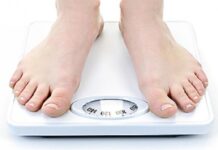Starting a diet to lose weight and improve health is a noble objective, but it may be daunting. When you start something new, there are going to be challenged, especially if it includes something you do numerous times a day, like eating and drinking.
Nevertheless, as long as you don’t try to alter everything at once, you should be able to reach your weight reduction objectives. Continue reading to uncover some of the experts’ methods for losing weight and keeping it off. After all, what good is losing weight if you just gain it back?
1. Stick to a Healthy Diet Plan
A healthy eating plan (such as the WebMD Weight Loss Clinic diet) should contain things you love and a variety of healthful, minimally processed foods such as fruits and other vegetables The most fulfilling foods are high in fibre and/or low in fat protein (for example, fruits, vegetables, whole grains, beans, and nuts) (found in meat, fish, dairy, and soy).
Preferably, you’ll gradually wean yourself away from processed meals that are rich in fat or calories, and replace them with more healthy ones. Feel free to create a new eating plan at any moment during this process that enhances certain healthy foods while decreasing others. WLC members should make a new strategy at the conclusion of the week. When you do this, the WLC electronic journal clears your slate.
Don’t be concerned if you’re a vegetarian or have food allergies or intolerances. Your tailored WLC eating plan may not cover all of the food categories advised, but it will supply essential nutrients. To fill any nutritional shortfalls, we recommend that everyone take a daily multivitamin/mineral supplement.
2. Take Small Steps towards a healthy diet plan
Change is difficult. The easiest method to alter your diet is to make tiny, incremental modifications to your eating habits. Some experts recommend making only one change every week to give yourself time to adjust to the new behaviour. Your ultimate objective is to develop new eating habits that will last a lifetime.
3. Establish Realistic Goals
Most people who need to lose weight establish unrealistic goals for themselves, fantasizing about fitting into clothes sizes that may or may not be practical for them. However, decreasing as little as 5% to 10% of your body weight may boost your mood, put a spring in your step, and, most importantly, improve your health. According to research, even little weight loss can benefit general health by lowering blood pressure, blood sugar, and cholesterol levels.
Slow and steady wins this race.
4. Reward rather than punish
Reward yourself after achieving mini-goals to keep motivation strong. After all, losing 5 pounds or going to the gym five times a week is cause for celebration.
However, don’t be too harsh on yourself if you fall off the wagon; everyone does, sooner or later. Expect blunders, and when they occur, simply brush yourself off and get back on track. Use your blunder to identify your weak points and plan how you will manage the scenario the next time without abandoning your diet. My advice is to attempt to perform your best 80 per cent of the time and loosen the rules somewhat the other 20% of the time.
5. Find a Partner
A good weight loss program must include support. Enlist the help of a family member, invite a friend to accompany you on your walks or exercises, and participate in the online community. These people will be a constant source of inspiration, support, and encouragement, especially when times are rough.
6. Keep a diet log
Successful losers understand the importance of documenting what and how much they consume. The mere act of writing it down is a strong skill that may assist you in maintaining control.
You should be pleased with yourself for making the decision to better your health. Know that the road ahead will be bumpy, but you will be successful with a solid eating plan, a supportive network, and an optimistic mindset.

















